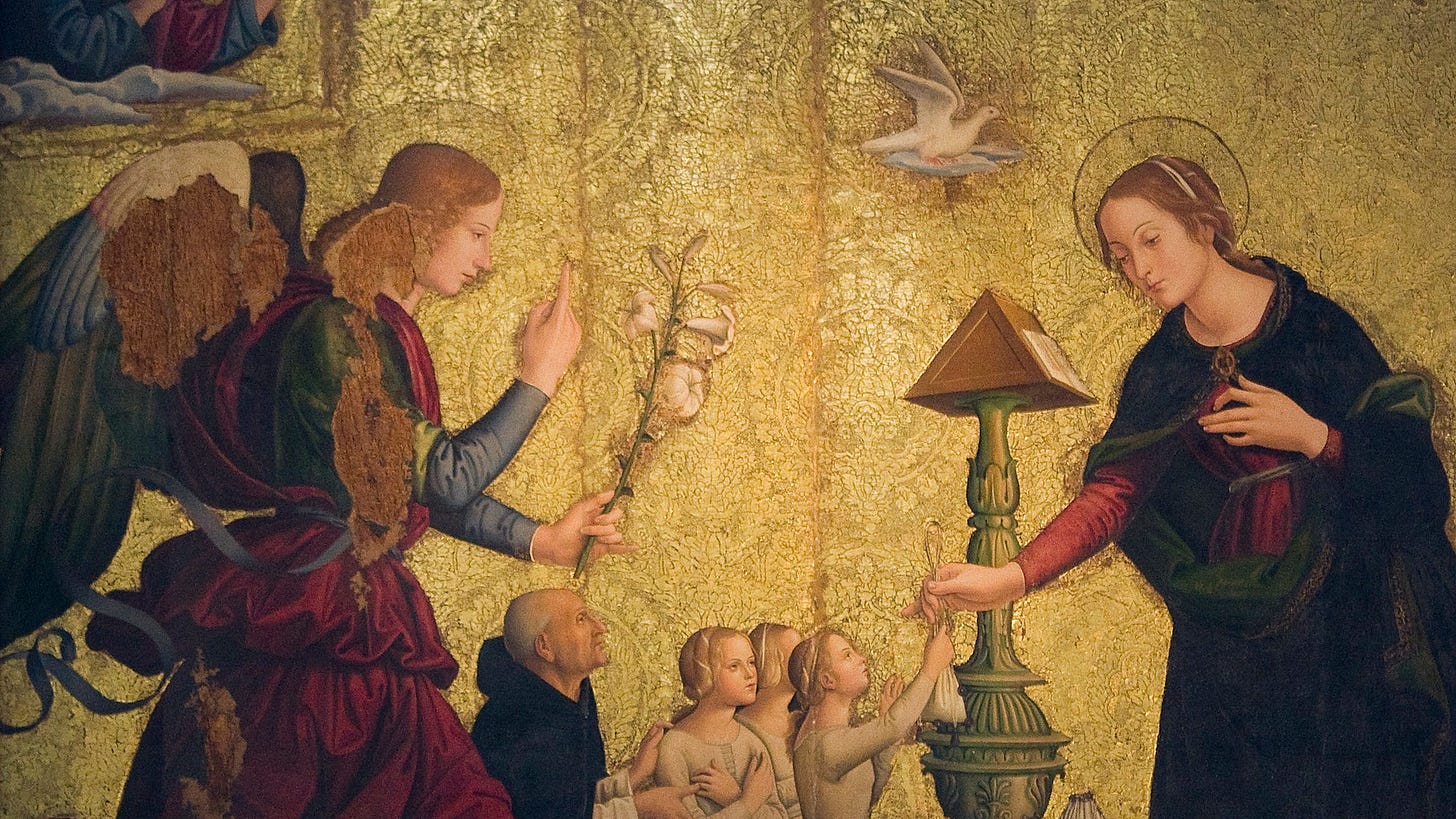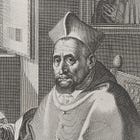Could a Pope destroy the Church? John de Torquemada answers
Cardinal Torquemada's list of ways this might happen doesn't include teaching heresy and errors, or imposing evil laws or a new religion.

Cardinal Torquemada's list of ways this might happen doesn't include teaching heresy and errors, or imposing evil laws or a new religion.
The following text is from the medieval theologian John de Torquemada (1388-1468), sometimes referred to as Tourquemada or Turrecremata.
Torquemada was not the famous inquisitor: that was his nephew, Thomas de Torquemada.
St Robert Bellarmine refers to this chapter in two key texts of his own, when dealing with the possibility of a pope who tries to destroy the Church.
Over the past sixty years, these “resistance quotes” from Bellarmine have been presented as justifying a programme of recognising the continuing legitimacy of an alleged pope who is a heretic, teaches heresy, or attempts to impose a new religion on the Church, whilst resisting those doctrinal or legislative acts which are contrary to the good of the Church.
Evil popes vs heretic popes
In fact, Bellarmine’s texts are dealing with an entirely different situation, namely a wicked, tyrannical or evil pope. As such, they cannot be taken as evidence that a true pope can destroy the Church doctrinally and in her laws whilst retaining office.
This is evident from Bellarmine’s own work, but it is also evident in the texts which he cites—including the below. The very first paragraph of this chapter sets out the sorts of ways in which a pope might try to destroy the Church.
It does not include the teaching of heresy and error, the promulgation of evil laws and liturgy, or the imposition of a new religion.
Commands vs. Laws
Each of the ways proposed by Torquemada entail either scandalous behaviour or commands. They do not involve teaching or laws (or at least not universal laws).
This is very significant. The idea of “resisting the pope” is not, in itself, problematic, providing we are clear what we are and are not saying.
Fr Damien Dutertre RCI explains the problem with conflating commands with teaching and laws in this department:
The particular commands, and the personal actions of the pope, are not the object of the special assistance promised by Christ to His Church through the divine institution of the papacy. They may sometimes be legitimately resisted and denounced.
What cannot be resisted, and what is always guaranteed by the assistance of the Holy Ghost are decisions on faith and morals, imposed on the universal Church, as well as universal disciplinary and liturgical laws, such as the promulgation of a new rite of the Mass. These have always been recognized as infallible by the doctors of the Church, and on that account, could never become the object of a “resistance.” For in these the faithful cannot be mislead, lest the words of Pope Leo XIII become true:
If it could in any way be false, an evident contradiction follows; for then God Himself would be the author of error in man. “Lord, if we be in error, we are being deceived by Thee.”1
Torquemada and the heretic pope question
It is ironic that the advocates of the contrary ideas feel like they can cite Torquemada as an authority for their programme of resistance, and for the continued legitimacy of a heretic pope.
This is because Torquemada himself held to what Bellarmine later called “the second opinion” on the pope heretic question:
“[T]he second opinion is that the pope, by that very fact (eo ipso) that he falls into heresy (even if only interiorly) is outside the Church and deposed by God; therefore, he can be judged by the Church, that is, declared to have been deposed by divine law, and deposed in fact (de facto) if he still refuses to yield.
“This is the position of John of Turrecremata in Book 4, Part 2, Chapter 20; but it does not convince me.”
Torquemada's embrace of this opinion means that his arguments assume that a heretic pope being resisted has already ceased to be pope. This text cannot, therefore, be an authority for a programme of “recognise and resistm”
This is aside from the fact that the text is not even dealing with resisting papal teaching or laws.
By contrast to Torquemada, Bellarmine presents “the fifth opinion”—which holds that a manifest heretic ceases ipso facto to be pope—as “true” and “certain,” contingent on it being possible for a pope to fall into heresy.
Conclusion
There are passages in Torquemada’s text which may seem to suggest that, in cases of heresy, a pope should be subject to the judgment of a council.
But given that he believed that even secret, internal heresy causes a pope to fall from office, his opinion here can hardly be marshalled in favour of such an idea.
The key point of this text is that it provides an illustration of what Bellarmine had in mind, when writing his “resistance quotes”—and it did not entail a heretic pope, or one who imposes his heresy on the Church, or promulgates laws that run counter to the faith.
That said, although it does not directly apply to our situation, there are several pieces of helpful advice for us today.
How could a Pope try to destroy the Church?
Cardinal John de Torquemada—Summa de Ecclesia
Chapter 106: On the remedies against a pope who, by his depraved morals, scandalises the Church
Original text from Hathi Trust. Base text translated by AI, each line scrutinised by a human.
Hearing what both adversaries and likewise other simple faithful say—namely, that the Roman pontiff, apart from the case of heresy and by reason of the loftiness of his principate, has no judge on earth who might judge or punish his evil deeds—they ask what ought to be done against a pope, should it happen that he…
Is incorrigibly corrupted in his morals, even to the scandal of the faithful
Or that he abuses his power
Is a squanderer of the Church
Wishes to grant ecclesiastical benefices solely by simony.
To these we respond, that there are several remedies.
To find out what those remedies are, join The WM Review as a monthly or annual member today.
Our work takes a lot of time and energy. Please consider subscribing if you like it.
Here’s why you should take out a membership of The WM Review today:
Help us continue building the case for a restrained, theological approach to the crisis in the Church
Support an eclectic and sometimes eccentric variety of content
Provide FREE membership to clergy/seminarians (subscribe and reply to the email if this applies to you.)
A small monthly membership really helps us keep The WM Review going. Can you chip in today?



